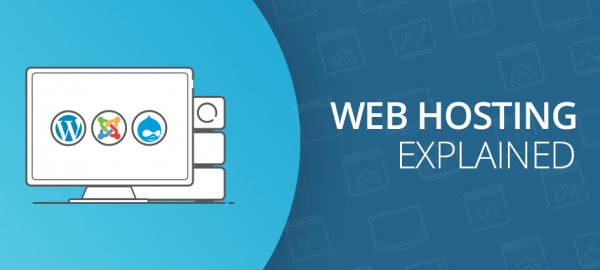You’ve built your website, gathered your files and images together and now you’re ready to launch it online. That’s where web hosting comes in.
Choosing the right hosting package is absolutely key to the future success of your website. It acts as the storage depot for your website’s files, making them available to everyone online who wants to visit your site. Without hosting, your website can’t ever be seen by anyone!
Big ecommerce sites with thousands of visitors a day have their own dedicated servers. But this is an expensive option that’s not practical for smaller concerns with very limited budgets. If you’re just starting out online with a blog, or a fairly modest website, you certainly won’t be expecting major volumes of traffic, although that may well come later.
This is where shared hosting comes to the rescue. It’s an incredibly cost-effective way of getting your site online, with a minimum of fuss. It allows your site to share server space with other websites. A very small proportion of the server will be made available to you, hosting your website 24/7 so that your web visitors can access it.
Shared hosting isn’t the best option for everyone. However, if you’re just starting out with a blog, small website or a database-driven site, it’s almost certainly going to be your best choice. Just consider the following points:
It’s cost-effective
Buying or renting a server is expensive, putting it way out of reach of the blogger or small business owner. When you’re just launching a website, you’re highly unlikely to be attracting huge volumes of online traffic. Smaller websites don’t generally need access to expensive features either, so there’s no point in paying for things you’re not going to be using. Shared hosting gets your website online for a simple, monthly fee, so you can easily work within your budget.
It doesn’t require advanced technical skills
Keeping a website online isn’t for the faint-hearted. Servers need to be carefully maintained in a dust-free, temperature-controlled environment to keep them operating in peak condition. And needless to say, updating software and keeping on top of routine maintenance requires a high level of technical knowledge. Fortunately, when you opt for shared hosting, you don’t have to give any of that so much as a moment’s thought. All the technical stuff is taken care of, so all you’ll need to worry about is updating your website content.
You’ll have the benefit of an extremely friendly control panel, allowing you to take complete charge of your website. In fact, this gives you full overall control of your entire website. You won’t need to pay anyone to make changes, saving you money. There will be a support team on hand to help you whenever you’re in need of some expert assistance.
You can upgrade as your site grows
Nobody sets up a website without hoping that visitor numbers will increase over time. And, particularly if you’re running a business, you’ll be hoping that your site will expand and grow over time too. So you need to know that you can move on if you outgrow your shared hosting plan. If you find that increasing traffic and extra web content are becoming an issue, it’s a simple matter to upgrade to a higher plan.
Depending on the scale of growth, that could be a dedicated server or a VPS. That stands for Virtual Private Server, and it’s the favoured solution for businesses that have outgrown their shared hosting plan. Rather than renting an entire server, a specific portion of a shared server is effectively cordoned off, specifically for your site.
File and resource restrictions
Because shared hosting involves sharing server space with other websites, there will be limits on the sizes, and types of files that you can upload. This is highly unlikely to be an issue for the majority of shared hosting customers, but it’s worth bearing in mind if your website is likely to breach any data limits.
Website performance
You’ll obviously want to optimise your website, so that it loads quickly. And you’ll probably carry out at least some basic SEO, or search engine optimisation so that web visitors can find your site in the first place. It’s important to choose the right web host. Since your site is sharing hosting space with others, unmanaged spikes in traffic for any of the sites on that server can impact the performance of your site too. It’s even possible that you could even find your site slipping down the search engine results, through absolutely no fault of your own. And if a shared server becomes seriously overloaded, it could even go down for a period of time.
